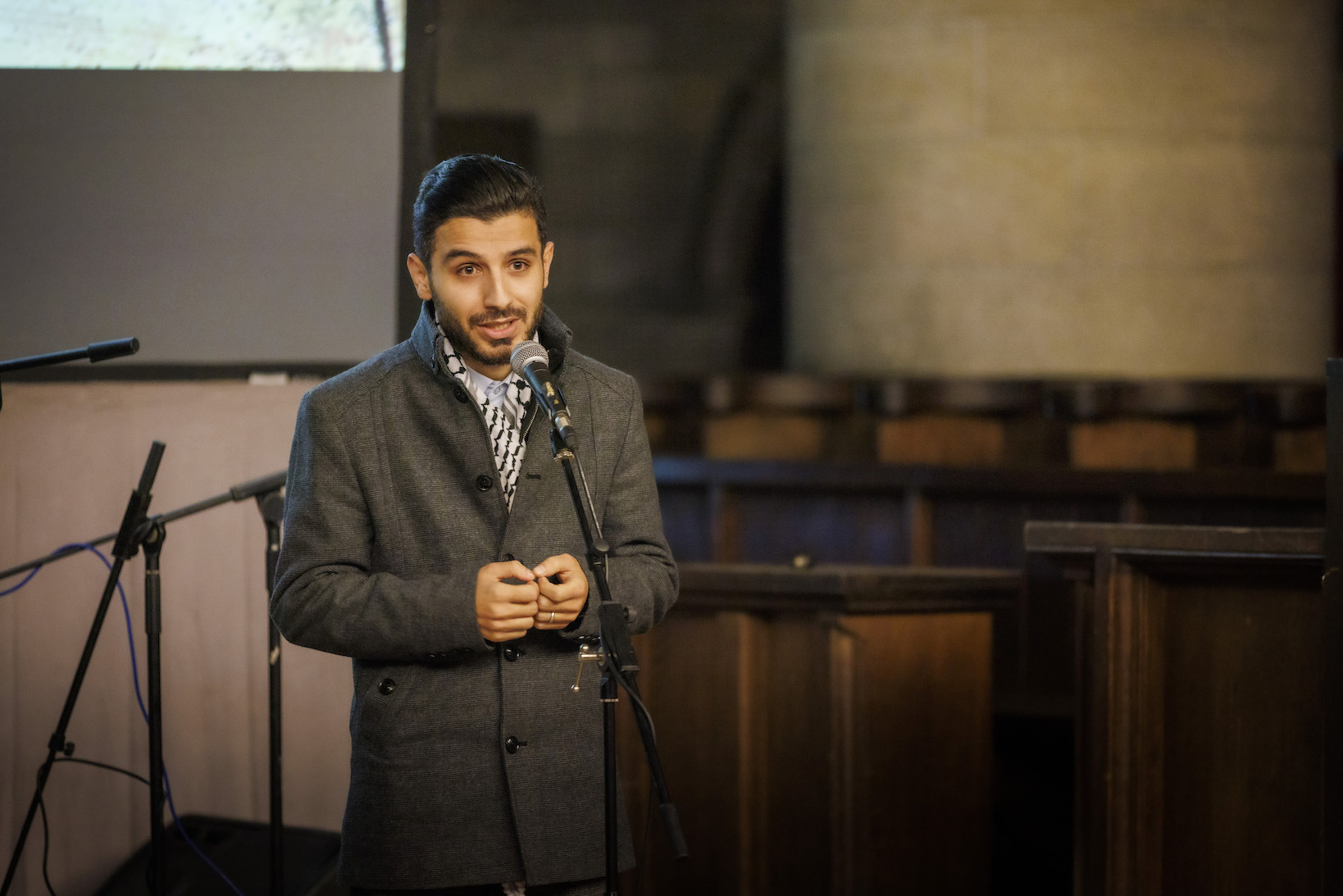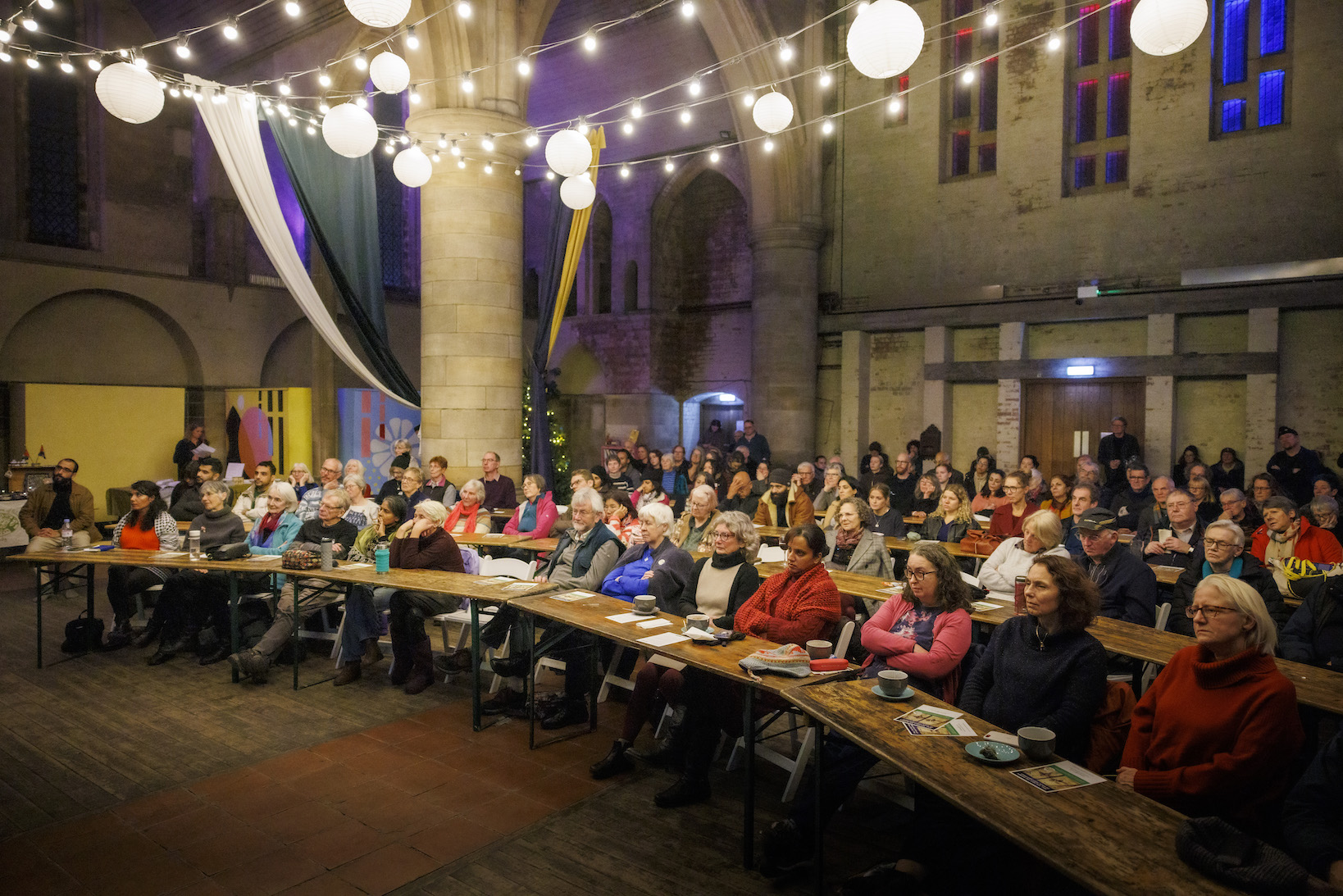How the Gaza siege has made me a stranger to the outside world

Leaving the Gaza Strip for the second time in my life has once again made me feel like a stranger to the outside world.
For most people, wars and death are the only things they know about my life.
Lasting longer than half of my generation’s lives, the siege has left us with barely a sign of hope to survive the wars or have a life where freedom of travel is a right
Despite this, my experience in Gaza - growing up isolated from the rest of the world - and becoming a writer has conditioned me to ignore my suffering and prioritise telling other people’s stories over my own.
For three years, as co-manager of We Are Not Numbers, I collected the stories of the people behind the numbers in the news.
Stay informed with MEE's newsletters
Sign up to get the latest alerts, insights and analysis, starting with Turkey Unpacked
With this in mind, my team and I shared our dream of bringing real voices from Gaza for a UK tour with our partner, Amos Trust, a human rights organisation based there.
The dream seemed impossible due to the 16-year blockade of Gaza - an ongoing siege that has lasted longer than half of my generation’s lives, with barely a sign of hope to survive the wars or to have a life where freedom to travel is a right that is enjoyed, not bestowed or bargained.
The tour was a challenge for the two organisations to plan, as all of the suggested writers and staff members of the project were deemed "ineligible" for the “high” standards of the UK visitor visa.
This came as no surprise to those of us in Gaza, however, for whom the "outside world" has always been elusive and inaccessible - further entrenching our feelings of isolation and suppression.
Stories unfold stories
Hope for the tour was reignited in early October 2022 with a plan by Amos Trust to raise funds during Christmas for a vital breast cancer screening programme at Al-Ahli Hospital in Gaza City.
My friend, Ahmed Alnauq, one of We Are Not Numbers co-founders and who currently directs the project from London, shared the tour plan with me and urged me to take part in it. He hoped that the tour would remind British communities that women in Gaza are three times more likely to die of breast cancer than their British counterparts.
Ahmed’s mother, Basema, was one of those Palestinian women who died. Neither Amos Trust nor I had known the cause of her death before he broke our hearts sharing it on stage during the tour.
Basema had waited for a very long time for permission from Israel to travel to Jerusalem for radiation therapy that is not available in Gaza.
In her dying days, Israel forced her to walk a great distance through the Erez Crossing, with no concern for her poor medical condition.
"By the time she could reach the hospital, it was too late," the doctors told Ahmed’s family.
Denied for being single
Attempting to travel outside Gaza means fighting for hope. If it is lost, it turns into a nightmare of prolonged depression and anxiety with the world perpetually reminding us that we are less than human.
When the idea of a UK tour was brought up again, I had no strength left in me to fight that fight.
Yet the rejection of Palestinian women because of being single and the approval for me because of being a father, even for a man, is too hypocritical to bear
I had learnt a few weeks earlier of my "security ban" by Israeli authorities from travelling to my own country. And I was told to hope that it would be just a regular six-month ban, which all Palestinians from Gaza face on their first attempts to travel to other parts of Palestine.
"Why should a Palestinian apply for a permit to visit Palestine?” I still wonder.
Nevertheless, I applied, along with two of my female colleagues including Enas Ghannam, the current project manager, to represent We Are Not Numbers on the UK tour.
After three weeks of waiting and experiencing waves of both hope and anxiety, I received word from Enas that the British government rejected their visas - a rejection that, sadly, is usual for us.
But we were shocked to discover that the reason for their denial is because they are "single women", who, because of their status, can provide "no guarantees" to the British government of returning to Gaza.
This meant that the tour, which is meant to help the women of Gaza fighting breast cancer, would have no women to share their daily struggles about living under the occupation and siege.
I received neither a letter of rejection nor approval, but had no expectations or hope, as I was already feeling depressed from being denied entry to Bethlehem. I worried that another rejection would sink my spirits even lower, so I made no plans to attend the tour.
I was, therefore, astonished to learn a week later that my passport had gone through and my visa to fly to the UK was approved.
But what should have been a delight turned into yet another slap in the face when I learnt that my approval came only because I was a father to my six-month-old infant, Sarah.
For British authorities, my baby is the invisible collateral for my entry into the country.
"Here's the photo of my lovely Sarah, the guarantee for the UK government that I will surely return to the besieged Gaza,” I tell people when they ask me about it.
Yet the rejection of Palestinian women because of being single and the approval for me because of being a father, even for a man, is too hypocritical to bear.
The discrepancies between the British government's pledges for upholding women's rights and the realities of Palestinian women being rejected because of their social status is yet another reminder of how unfair the world can be to people who need fairness and equality.
"I felt so humiliated, and I'm depressed thinking about it," Enas said in a webinar during the tour.
The normal and the normalised
The trip aimed at meeting different communities with different backgrounds, religions, ethnicities, and interests for events at churches, mosques, and universities in various cities including Manchester, Liverpool, Leicester, Durham, Birmingham, Leeds, London and Bristol.
Together, we shed tears for the suffering and pain of our people, prayed for hope and peace, and were inspired by the stories we shared during each event.
Even with our exposure to western communities and experience of working with international writers and activists, the trip was full of eye-opening discussions.
One of them was on the differences between what may be considered a "normal" life for people in the UK and for those of us in Palestine - with details about Gaza especially shocking audiences.
Some people were genuinely surprised to learn more that we have lives similar to their own, including some very typical human interests like music and cycling.
Others expressed their outrage at the reality that a Palestinian from Gaza is more likely to see a Palestinian from the West Bank elsewhere in the world rather than in his or her own country; or that it is impossible for a Palestinian from Gaza to go to the West Bank or vice versa, without obtaining a permit from Israel.
"Imagine having to apply for a permit to visit another city in the UK," I would tell audiences as a way of relating our normalised abnormal experience to them.
Throughout our storytelling and advocacy work, we hoped that many people would begin to see and understand us a bit more as people, not just casualty numbers or houses bombed by Israel.
I was disheartened to see that many years of our lives appeared to have been lost in the battle to be heard as people against media blackouts, censorship, and other distortions.
"To understand the suffering of the Palestinian people, you must see them as people first," I always say.
The views expressed in this article belong to the author and do not necessarily reflect the editorial policy of Middle East Eye.
Middle East Eye delivers independent and unrivalled coverage and analysis of the Middle East, North Africa and beyond. To learn more about republishing this content and the associated fees, please fill out this form. More about MEE can be found here.









